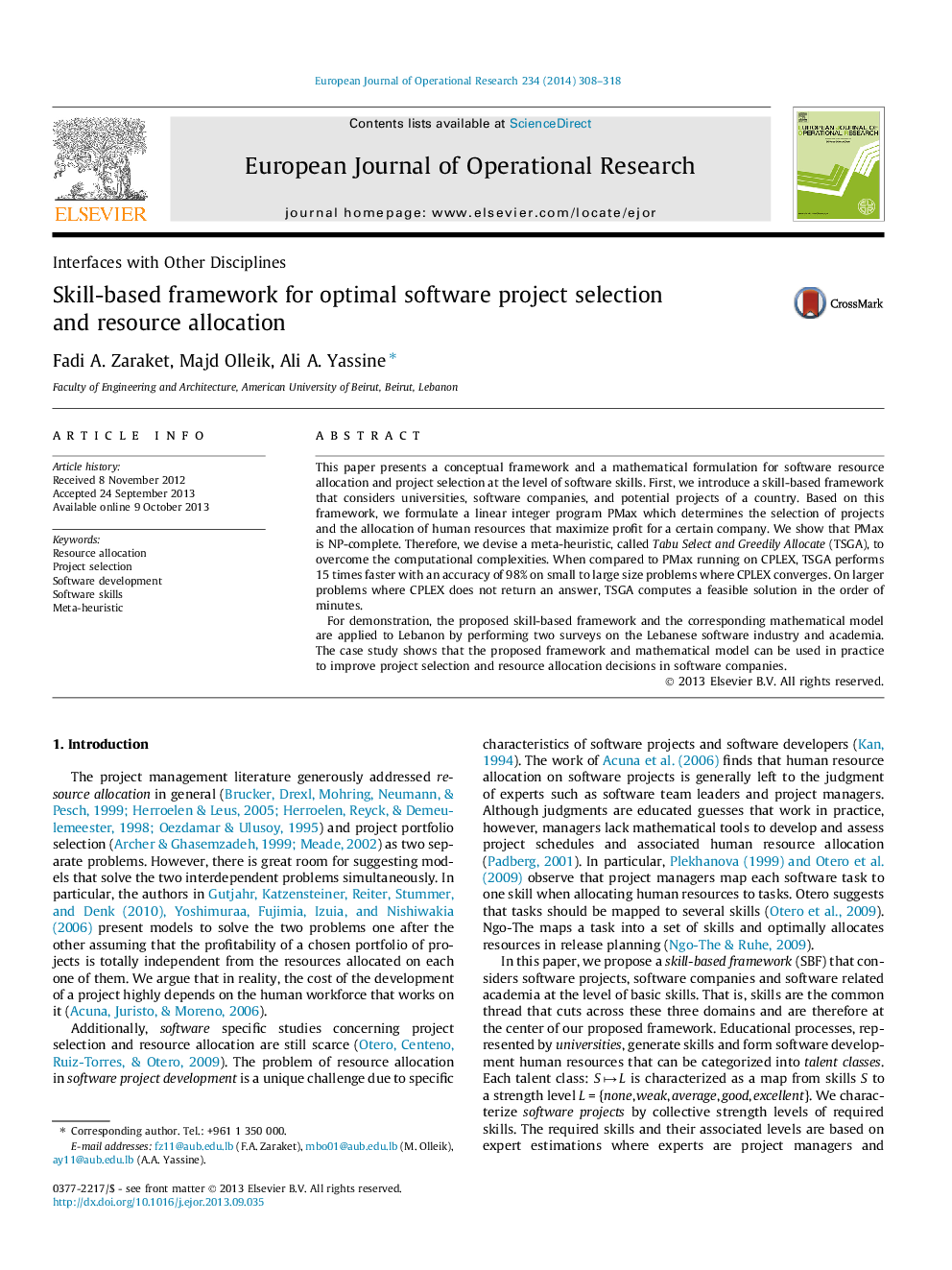| Article ID | Journal | Published Year | Pages | File Type |
|---|---|---|---|---|
| 479886 | European Journal of Operational Research | 2014 | 11 Pages |
•We propose a conceptual skill-based framework to capture resource allocation in software development projects.•We build a corresponding mathematical model for resource allocation and project selection at the level of software skills.•We develop a meta-heuristic to solve this problem which overcomes the computational complexity of the proposed formulation.•The proposed framework and the corresponding model are applied to the case of Lebanon.
This paper presents a conceptual framework and a mathematical formulation for software resource allocation and project selection at the level of software skills. First, we introduce a skill-based framework that considers universities, software companies, and potential projects of a country. Based on this framework, we formulate a linear integer program PMax which determines the selection of projects and the allocation of human resources that maximize profit for a certain company. We show that PMax is NP-complete. Therefore, we devise a meta-heuristic, called Tabu Select and Greedily Allocate (TSGA), to overcome the computational complexities. When compared to PMax running on CPLEX, TSGA performs 15 times faster with an accuracy of 98% on small to large size problems where CPLEX converges. On larger problems where CPLEX does not return an answer, TSGA computes a feasible solution in the order of minutes.For demonstration, the proposed skill-based framework and the corresponding mathematical model are applied to Lebanon by performing two surveys on the Lebanese software industry and academia. The case study shows that the proposed framework and mathematical model can be used in practice to improve project selection and resource allocation decisions in software companies.
